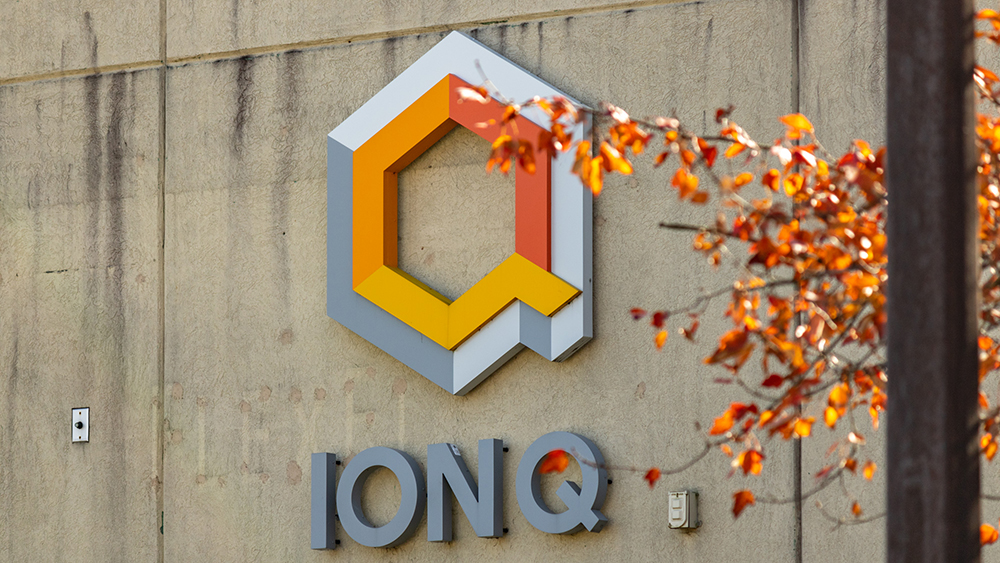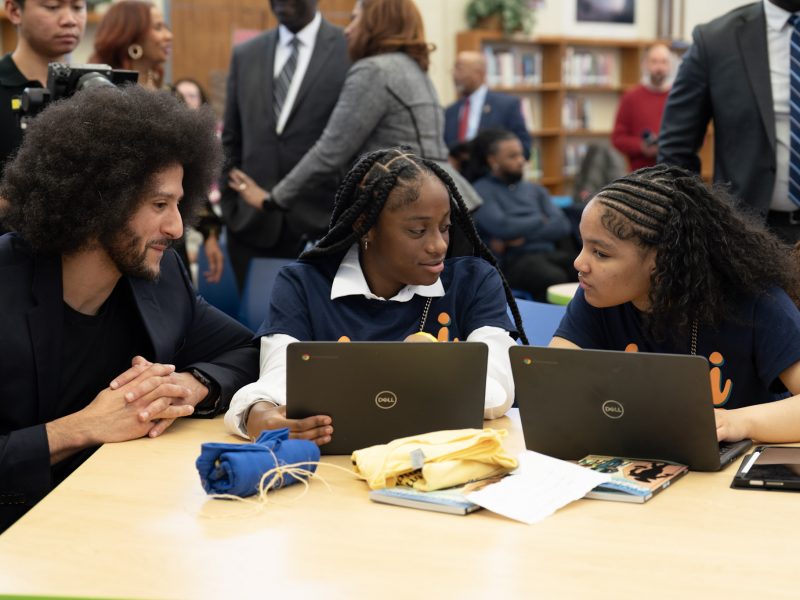Maryland Gov. Larry Hogan named IonQ, a College Park quantum computing company, as one of the top 20 start-up companies in the state, according to a Tuesday press release.
IonQ, a start-up company based in the Discovery District, is working to build quantum computers and develop software applications to accompany them. Last month, the company announced it had built a quantum computer more powerful than any other in the world that’s been announced so far.
The growing business, which continues to expand in the city, is currently the only quantum computing system working with both Amazon and Microsoft. IonQ also announced last month that it is expanding its space in College Park by opening a new data center and that executives who formerly worked for Google and IBM would be joining the company.
It’s the latest step in College Park’s efforts to develop itself as a hub for quantum computing.
“[Quantum computing is] going to have a lot of impact in the world, but it’s hard because a lot of other people don’t understand the significance of it,” said Sammy Popat, the manager of College Park’s Discovery District.
Quantum computers can be used to solve complex problems still considered too time-consuming for traditional computers, which allows for people to find solutions to problems previously thought to be unsolvable.
[In Vision 2030 plan, College Park aims to promote walkability, develop affordable housing]
IonQ’s technology is based on research from University of Maryland physics professor Chris Monroe. The university owns intellectual property used by IonQ, and it recently invested $5.5 million in the company. The university is also an important pipeline for finding many of their company’s new hires, said Mahsa Dornajafi, IonQ’s vice president of finance and operations.
“Machine learning, chemistry, solar, financial, logistics, and drug discovery all have numerous inputs that would require optimization that classical computers today cannot solve,” said Dornajafi, a graduate of this university.
Andrew Childs, the co-director of the university’s Joint Center for Quantum Information and Computer Science, emphasized how it’s important to be “realistic” about the practicality of the quantum computing field.
“It’s not obvious quantum computers are around the corner, and we’re going to be using them for all kinds of practical computations tomorrow,” said Childs, who’s also a professor in the computer science department. “At the same time, there really has been a lot of interest recently that’s been driven by real experimental progress.”
As part of his research, Childs develops algorithms that quantum computers could potentially solve. He also researches the theoretical strengths and limitations of quantum computing in relation to classical computing.
Childs is part of a group of quantum-focused researchers from across the university. Researchers involved in quantum technology have received millions of dollars in federal grants and work with a variety of government agencies, including the U.S. Army Research Laboratory and Department of Energy.
“The industry has gotten really interested in trying to engage more and really build devices that do quantum computation,” Childs said. “This has really led to the kind of current excitement, which is a great kind of climate to be working in.”
[Riverdale Park, College Park restaurants prep businesses for upcoming temperature drop]



